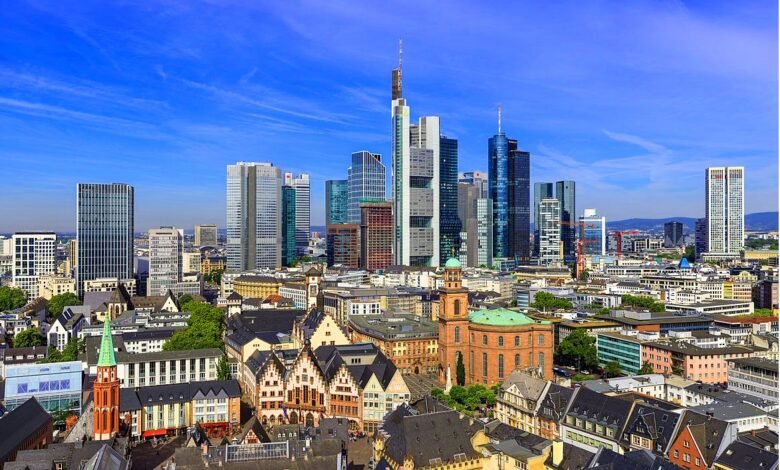
In the realm of global commerce, few nations wield as much influence as Germany. Renowned for its precision engineering, robust manufacturing sector, and strategic geographical location at the heart of Europe, Germany plays a pivotal role in shaping the landscape of international trade.
From its bustling ports to its innovative industries, Germany’s economic prowess resonates across continents, making it a crucial player in the interconnected web of global trade. Let’s delve into the intricate fabric of Germany’s role in shaping the dynamics of international commerce and its far-reaching implications on the global economy.
Germany’s Significance in Global Trade
Germany stands as Europe’s largest economy and the fourth-largest globally, wielding substantial influence in international commerce. Its strategic location at the heart of Europe, advanced infrastructure, and skilled workforce contribute significantly to its prominence in global trade.
Germany’s Position as an Export Powerhouse
Major Export Industries
German exports encompass a diverse range of products, including automobiles, machinery, chemicals, and electrical equipment. The country’s reputation for producing high-quality goods drives demand worldwide.
Top Export Destinations
Germany’s export prowess extends to various regions, with key markets including the United States, China, France, and the United Kingdom. Its ability to penetrate diverse markets underscores its global trade significance.
Role of Germany in the European Union’s Trade Dynamics
Leadership in EU Trade Policies
As the largest economy within the European Union (EU), Germany exerts considerable influence on the bloc’s trade policies and negotiations. Its economic strength amplifies its voice in shaping the EU’s trade agenda.
Influence on Trade Agreements and Regulations
Germany’s proactive involvement in formulating trade agreements within the EU reinforces its position as a key player in setting regional trade regulations and standards.
Read More: Is Germany’s Economic Power Generated Only by Exports?
Germany’s Role in International Trade Organizations
Participation in WTO and Other Trade Bodies
Germany actively engages in international trade organizations such as the World Trade Organization (WTO), advocating for fair trade practices and promoting multilateral trade agreements.
Advocacy for Open Markets and Free Trade
Germany champions the principles of open markets and free trade, emphasizing the benefits of globalization and economic interdependence.
Impact of German Multinational Corporations on Global Trade
Presence of German Companies in Various Sectors
German multinational corporations, including Volkswagen, Siemens, and Bayer, operate globally across diverse sectors, contributing significantly to global trade flows.
Contribution to Global Supply Chains
German firms play a vital role in global supply chains, providing essential components and technologies to industries worldwide, thereby shaping international trade networks.
Germany’s Trade Balance and Economic Stability
Trade Surplus vs. Deficit
Germany consistently maintains a trade surplus, exporting more goods and services than it imports. This surplus strengthens its economic stability and supports domestic growth.
Effect on Domestic Economy and Global Markets
The stability of Germany’s trade balance positively impacts its domestic economy by fostering investment, employment, and innovation. Moreover, its trade surplus influences global financial markets and exchange rates.
Challenges and Controversies in Germany’s Trade Relations
Trade Disputes and Tariffs
Germany faces challenges related to trade disputes and tariffs, particularly amid geopolitical tensions and protectionist measures imposed by trading partners.
Criticism of Trade Practices and Policies
Critics argue that Germany’s persistent trade surplus contributes to global imbalances and exacerbates trade tensions, prompting calls for policy reforms to address trade disparities.
Future Prospects and Evolving Role of Germany in Global Trade
Adaptation to Changing Market Dynamics
Germany continues to adapt to evolving market dynamics, including technological advancements, shifting consumer preferences, and geopolitical uncertainties, to sustain its competitive edge in global trade.
Potential Influence on Emerging Trade Trends
As a leader in innovation and sustainability, Germany is poised to influence emerging trade trends, such as digitalization, renewable energy, and circular economy practices, shaping the future of global commerce.
Read More: Engineering Excellence: Looking at the History of German Cars
Conclusion
Germany’s pivotal role in global trade stems from its economic prowess, export-oriented industries, and proactive engagement in shaping international trade policies. As the world navigates through evolving trade dynamics, Germany’s influence is set to endure, shaping the course of global commerce.
FAQs
How does Germany’s trade surplus affect its domestic economy?
Germany’s trade surplus contributes to economic stability by supporting investment, employment, and innovation within the country.
What are some challenges faced by German multinational corporations in global trade?
German multinational corporations encounter challenges such as trade disputes, tariffs, and geopolitical uncertainties that impact their global operations.
What role does Germany play in shaping trade policies within the European Union?
Germany, as the largest economy in the EU, influences the bloc’s trade policies and negotiations, advocating for open markets and free trade.
How does Germany’s export of high-quality goods impact global trade dynamics?
Germany’s reputation for producing high-quality goods enhances its competitiveness in global markets, driving demand and shaping international trade flows.
What steps is Germany taking to address criticisms of its persistent trade surplus?
Germany is exploring policy reforms and initiatives to address criticisms of its trade surplus, including promoting domestic consumption and investing in infrastructure and innovation.











